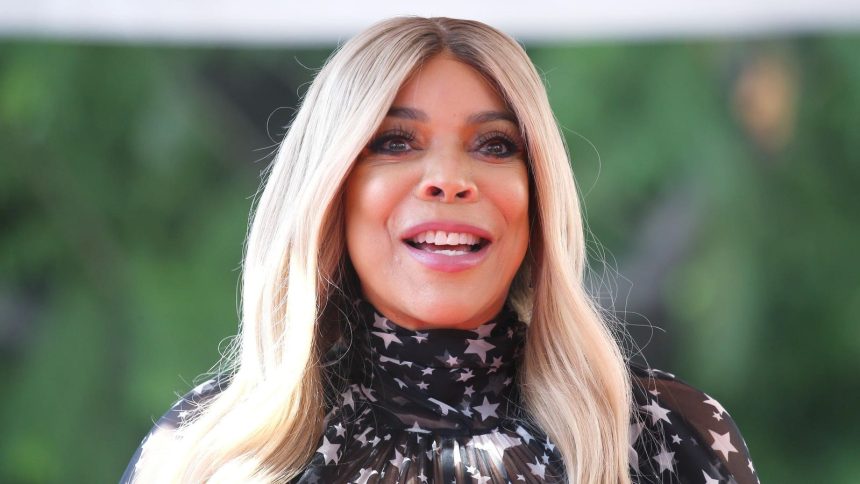Wendy Williams, the once vibrant and outspoken host of the eponymous daytime talk show, resurfaced in a candid interview with “The Breakfast Club” radio show, vehemently refuting claims of cognitive impairment and painting a stark picture of her life under financial guardianship. Williams’s call into the show was a rare public appearance following a series of health challenges and legal battles that have kept her largely out of the spotlight since her show’s cancellation in 2021. She directly addressed the persistent rumors about her mental state, challenging listeners to assess her cognitive abilities based on her conversation, underscoring her frustration with the narrative surrounding her health. Her interview revealed a woman grappling with the restrictions imposed by the guardianship, which she described as a “prison” and a form of “emotional abuse.”
At the heart of Williams’s distress lies the severe limitations placed on her personal freedoms and finances. She described an existence devoid of access to her own money, communication devices, and even basic technology like a laptop or cell phone. The lack of control extends to her personal connections, as she revealed she is unable to receive calls, further isolating her from the outside world. The guardianship, initially implemented after Wells Fargo froze her accounts in 2022 citing concerns about her well-being, has transformed into a source of anguish for Williams, who feels trapped and disempowered. She expressed uncertainty about being able to see her aging father for his upcoming 94th birthday, a poignant illustration of the emotional toll the guardianship has taken.
Williams’s niece, Alex Finnie, joined her on the call, providing further insight into the family’s perspective. Finnie emphasized the family’s desire for Williams to be free from the constraints of the guardianship and to live with dignity, echoing Williams’s own sentiments. They described a restrictive environment where Williams requires permission to leave her room and has limited interaction with others, primarily with “nursemaids” who administer medication, the purpose of which Williams claims to be unaware. This portrayal of Williams’s current circumstances contrasts sharply with her previously independent and public persona, highlighting the drastic change in her life.
The interview also touched upon the recent Lifetime docuseries, “Where Is Wendy Williams?”, which chronicled her struggles and disappearance from the public eye. While Williams confirmed having watched the series, she declined to elaborate on her thoughts about the production. This reticence adds another layer of intrigue to an already complex narrative, leaving unanswered questions about her perspective on the portrayal of her life. The docuseries itself has been the subject of legal action, with Williams’s guardian suing the network over claims that Williams was unable to consent to being filmed due to her cognitive state. This ongoing legal battle further complicates the situation, highlighting the conflicting narratives surrounding Williams’s capacity and autonomy.
Further intensifying the interview was Williams’s commentary on Sean “Diddy” Combs’s current legal troubles. Echoing 50 Cent’s frequent derision of Combs, Williams expressed a strong belief in Combs’s guilt regarding allegations of rape, sexual assault, and sex trafficking. She hinted at past knowledge of Combs’s alleged behavior, adding fuel to long-standing rumors about their shared history and the circumstances surrounding Williams’s departure from Hot 97 radio in the 1990s. This bold statement, delivered with characteristic bluntness, reignited speculation about the nature of their relationship and the potential role Combs played in Williams’s career trajectory.
The backdrop to Williams’s current struggles is a complex tapestry of health issues and legal battles. Her previously disclosed diagnoses of Graves’ disease and hyperthyroidism, coupled with the subsequent freezing of her assets by Wells Fargo and the implementation of the financial guardianship, have created a tumultuous period in her life. The bank’s characterization of Williams as an “incapacitated person” led to the court-appointed guardianship, a move that Williams’s attorney disputed, asserting that she “strenuously denies all allegations about her mental health and well-being.” This conflicting information adds to the ambiguity surrounding Williams’s condition and the necessity of the guardianship. Further complicating the picture is the February 2024 announcement by Williams’s representatives of her diagnoses of “progressive aphasia and frontotemporal dementia,” providing a medical explanation for reported instances of word loss, erratic behavior, and difficulty with financial transactions. However, this diagnosis stands in direct contradiction to Williams’s own assertions during the interview, creating a stark contrast between her self-assessment and the medical information released on her behalf. The ongoing legal proceedings, conflicting diagnoses, and Williams’s own impassioned pleas for autonomy paint a complex and concerning picture of her current situation.



